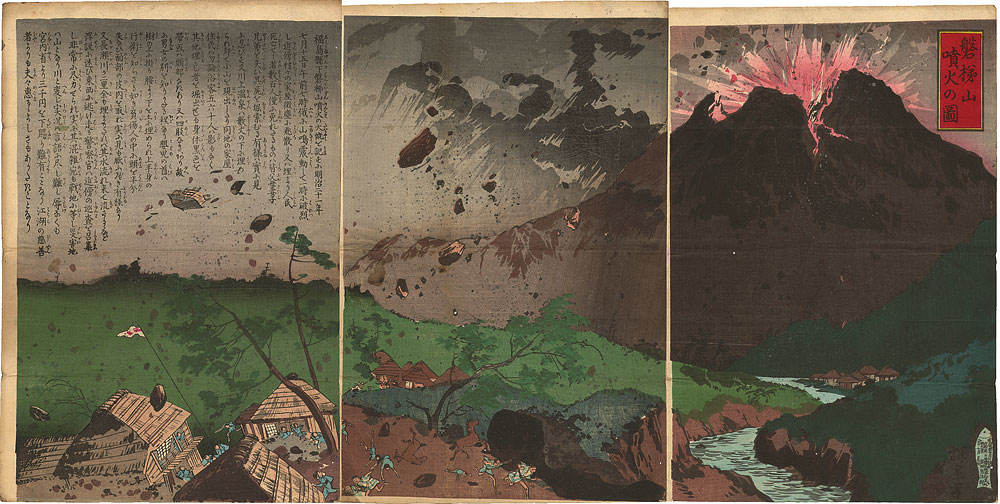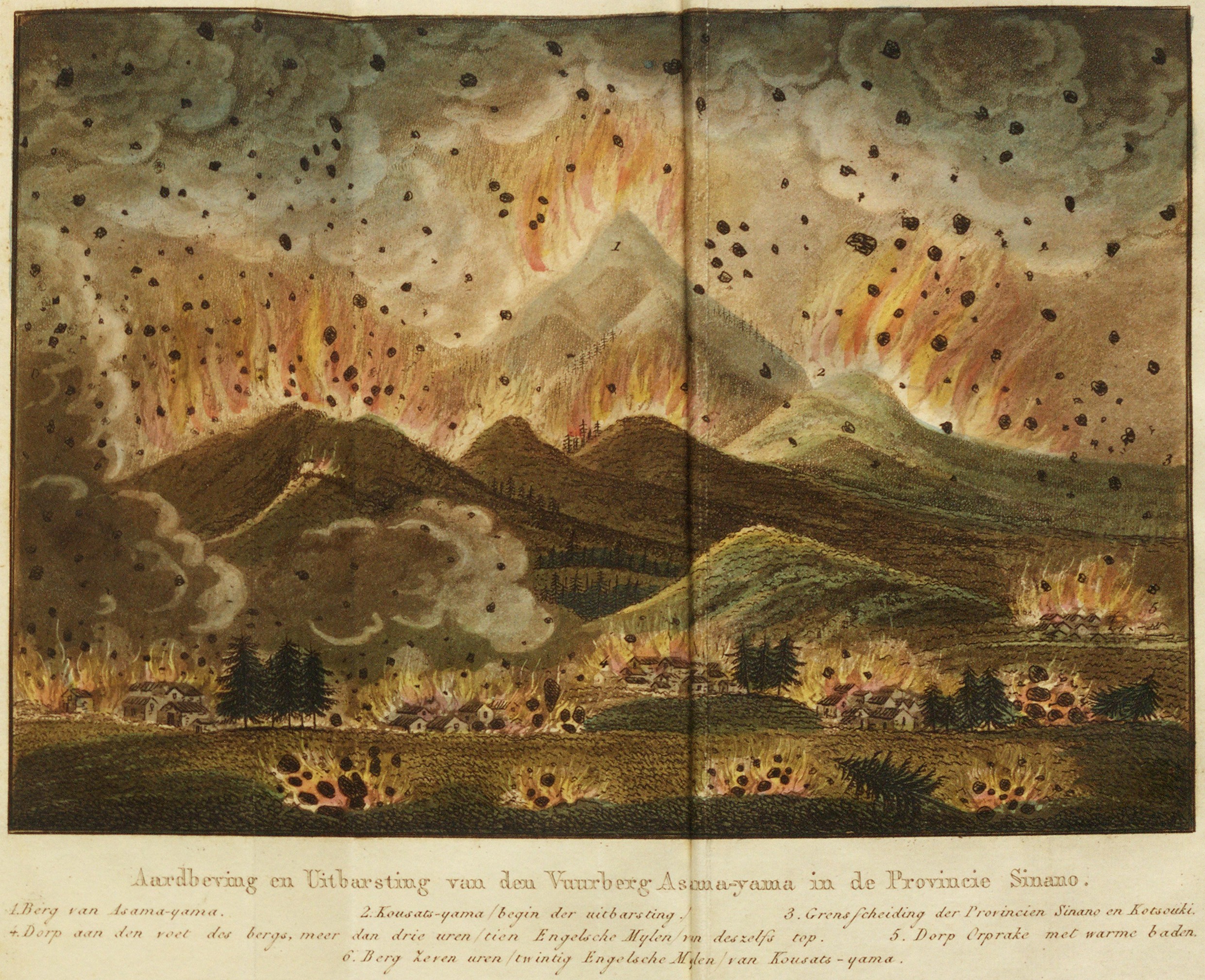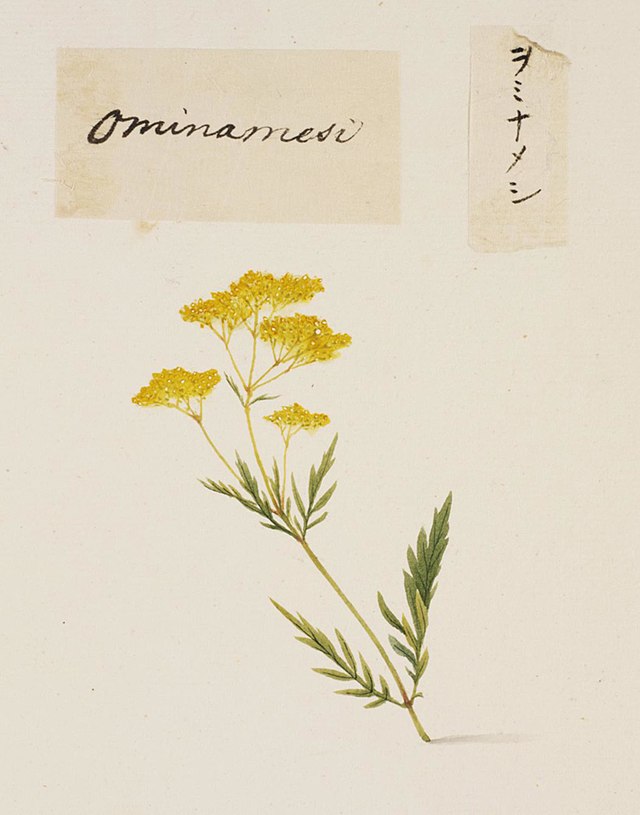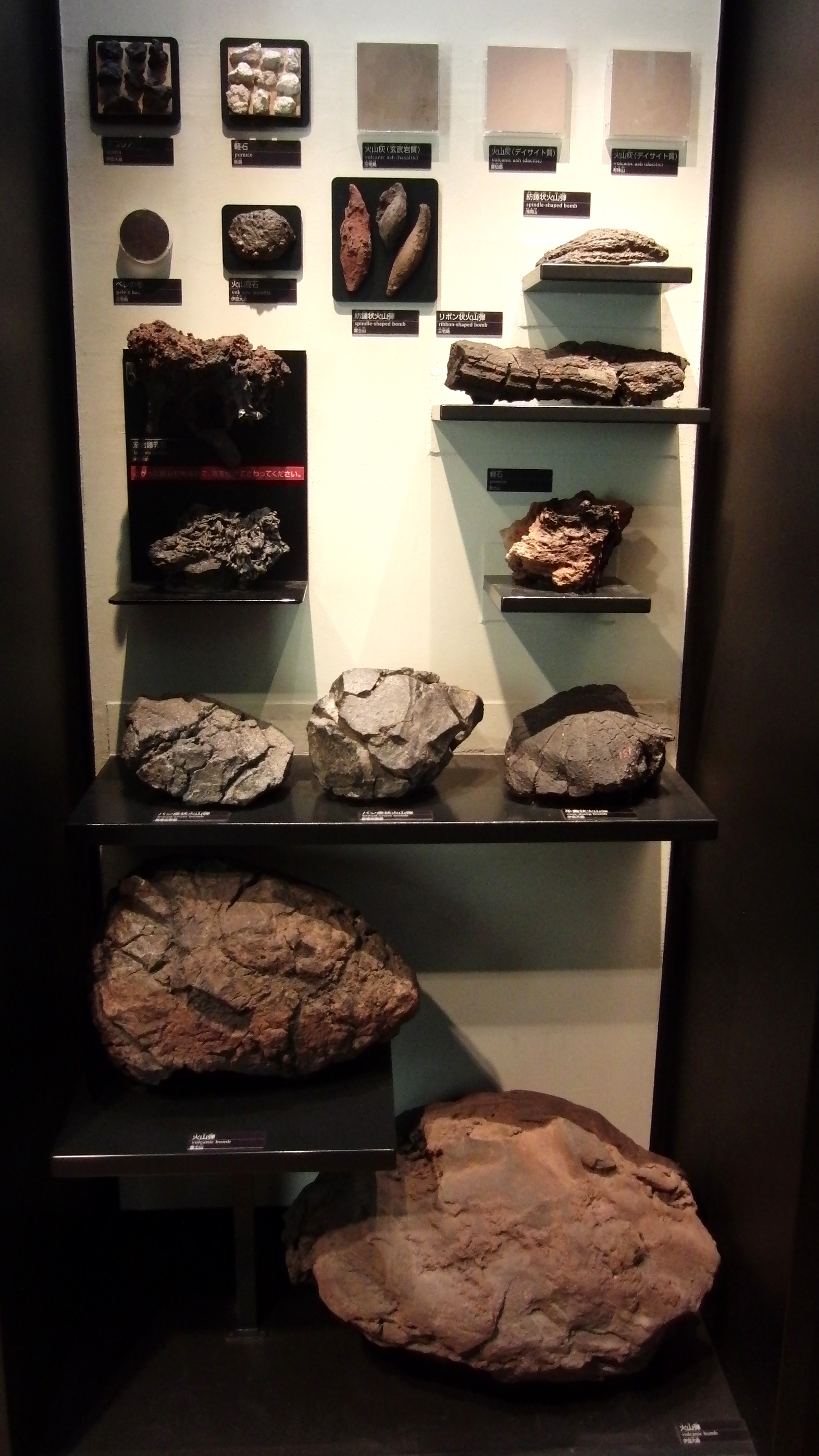The Good-Natured
Volcanic Bomb
by Miyazawa Kenji
Miyazawa was an Esperantist for a time, and his Japanese-language works continue to be translated into Esperanto, which is how I discovered him. I wasn't able to find this particular story published in English; I wanted to share it with those who can't read Japanese or Esperanto.
For those who can read or speak Japanese, here is an audio version, and Tanaka Kiyo has made a wonderful picture book. (The illustrations in the Konisi Esperanto edition are also lovely.)
In the shadow of an oak on the coat-tails of a dormant volcano, sat a long-motionless big black stone named "Bego-stone".
The name Bego was given to it by the other stones — small and angular — which were scattered here and there in the surrounding grass. It did of course have another, more important, true name, but even the "Bego-stone" itself didn't know it.
The Bego-stone lacked edges, and it had a shape similar to an egg with flat extended ends. Its body was obliquely surrounded by two stone areas. It had such a good nature that it was never angry.
And so, if a dense fog appeared and one couldn't see anything, neither the sky not the mountains nor the meadow on the other side, on that tedious day the angled stones all amused themselves by teasing the Bego-stone.
"Good day, Mister Bego! Has your stomachache quit yet?"
"Thank you, but I never had a stomachache," the Bego-stone said quietly in the fog.
"Hahaha! Hahaha!" the angled stones laughed all together.
"Good day Mister Bego! Yesterday evening did the owls bring you chili peppers as a gift?"
"No. It seems that the owls didn't come here yesterday."
"Hahaha! Hahaha!" the angled stones exploded in laughter.
"Good day, Mister Bego! Yesterday evening savage horses doused you with piss, right? Such a shame."
"Thank you, but fortune favors me and I've not met with such an accident."
"Hahaha! Hahaha!" laughed all the stones.
"Good day, Mister Bego! Listen, they just passed a new law saying that all round or nearly round things must be cracked like a broken egg. So it'd be best if you ran away immediately."
"Thank you. Then I'll be broken together with the sun, the chief of all things round."
"Hahaha! Hahaha! It's really so helplessly stupid!"
Just then the fog disappeared. Golden sunbeams fell and exposed the whole blue sky. The angled stones then started to dream about rain made of brandy and cakes made from snow. Likewise, the Bego-stone raised its eyes to the blue sky and the sun, the chief of all things round.
The next day the fog reappeared and the angled stones started to tease the Bego-stone again. Honestly, only they thought that they were teasing it.
"Mister Bego! How come you only have one shape — roundly round — while we have so many firm edges? Even though we all fell during the same eruption."
"Because my body was constantly turning when I, just born and still ardently burning, climbed through the air."
"Hmm... During the climb through the air, and at the momentary pause at the apex, and also during the subsequent fall, we always stayed still. So why did only you turn like that the whole time?"
While they boasted thus, they forgot that they had been broken to pieces in the eruption and the black smoke-filled climb through the air.
"I don't know. I really didn't mean to turn myself, but my body spontaneously turned without my help."
"Hmm... We know that the body shakes spontaneously if anything terrifying happens. It could be that you turned because you are very timid."
"You're right, maybe it's because I'm timid. In fact, the light and the noise of the eruption were truly terrifying."
"It ought to be why. Because you're timid, no doubt. Hahaha! Hahaha!"
The angled stones loudly laughed together. Then the fog disappeared. They each turned to the sky and started to think about their own affairs.
Likewise, the Bego-stone was silent and watched the lightning flash through the oak's leaves.
And after that, many times snow fell and plants budded. Many times the oak let fall the old leaves and supported the new.
One day, the oak said:
"Mister Bego! By now a long time has passed since I became acquainted with you."
"Yes, a long time. And you've grown so much."
"No. But before I was extremely tiny, and even thought that you were a colossal black mountain!"
"Ha, that could be. Now you're five times taller than me, right?"
"Yes, I see that it's so."
The oak, full of pride, trembled its branches.
In the beginning the Bego-stone was teased only by its fellow stones, but its excessive good nature little by little made all the others start to tease it. Once, the golden lace said:
"Mister Bego! I'm finally wearing a golden crown!"
"My deepest congratulations, mister golden lace!"
"When will you wear a crown, mister Bego?"
"Well... I'll never wear a crown, I think."
"Really? That's a shame. But... No... Hm, you already have a crown, I see."
The golden lace had noticed that tiny moss had started growing on Bego-stone.
"No, that's moss," laughed Bego-stone.
"Really? It looks almost impressive."
And again, ten days passed. The golden lace cried with wonder:
"Mister Bego! At last last, you have a crown! That is, the moss that's growing on you has red hats. Congratulations!"
Bego-stone let loose a bitter laugh, and said unintentionally:
"Thank you. But the red hats are the crowns of the moss. Not mine. My crown, and the whole meadow's, will soon be colored silver."
The Bego-stone's words alarmed the golden lace.
"That means that it'll snow soon, right? Oh heavens!"
The Bego-stone realized what it had said, and hastily consoled the golden lace.
"Oh, forgive me, mister golden lace! The coming of the snow certainly isn't pleasing to you, but it happens inevitably every year. But mister, you'll definitely bounce back after the snow melts in the new year!"
The golden lace answered no more. And the next day it happened that a buzzing mosquito flew by with a kuun kuun.
"Well, this is unpleasant; around this meadow there are many useless things. Take this Bego-stone, for example. Such a stone is useful for nothing. It doesn't dig the earth, like a mole, to refresh the air. It doesn't glisten with dew, like the blades of grass, which cure our ailing eyes. kuun kuun..."
The moss on the Bego-stone had previously heard a variety of insults, but the mosquito's most recent insult encouraged it to finally start teasing the Bego-stone.
And it started to dance with its little red hats on its head.
"Black Bego, big-head Bego!
Big-head Bego, don don.
In the rain, big-head Bego, don don.
In the sun, big-head Bego, don don.
Black Bego, big-head Bego!
Big-head Bego, don don.
In an era, big-head Bego, don don.
In an eon, big-head Bego, don don."
The Bego-stone burst out laughting.
"How beautifully you sing! But, let me say, while I'm not offended by the song, it's still ruder than you think. So I'll perform a song for you. Sing that if you prefer. Ahem.
Heavens! Heavens! Heavenly milk!
The cold rain loudly drips
from the oak, ton ton ton.
The fog whitens, pos san ton.
Heavens! Heavens! Heavenly light!
The sun shines, kan kan kan.
The moon beams, cun cun cun.
The stars twinkle, pikka-ri-ko."
"Pfft, how awful! Boring!"
"Really? I'm really inexperienced with this kind of thing..."
The Bego-stone fell silent.
And all the others in the meadow teased the Bego-stone with one voice.
"Ugh, no-good Bego-stone! Look at its ridiculous little red hats! We won't be friends with it. That would dishonor us, wretch! Black Bego, don don, big-head Bego, don don!"
And then from far away across the meadow came four tall, respectacle men with eyeglasses who were carrying a collection of shiny instruments. One of them cast his eyes on the Bego-stone and said:
"Well well, what a find! Exquisite! Really an excellent specimen, isn't it? A typical volcanic bomb! It's the only time I've seen one so well-formed. These striations are so orderly! This has enough value to justify this entire expedition!"
"Yes indeed. How well-formed it is. Even the British Museum doesn't have such a beautiful volcanic bomb."
The men set their instruments down in the grass around the Bego-stone and started to rub and caress it.
"Nowhere can be found a specimen with striations this perfect. Look. We can see quite clearly that it went spinning through the air like a top. Wonderful, wonderful! We must take it with us today, as soon as possible."
And they went back far away. The angled stones were now only silently sighing where they sat. And the good volcano bomb silently smiled.
After midday, the eyeglasses and instruments again shone across the meadow,and the four scientists came with villagers and a cargo wagon drawn by a horse.
And they stopped under the oak.
"Now then, watch that you don't damage it, because it is a specimen of great value. Pack it carefully, I beg you. We must rip off that worthless moss."
The moss wept as it was ripped off. As the volcanic bomb was being covered with clean straw and mats, it said:
"Farewell, dear ones! For a long time you have favored me with your warm friendship. Farewell, mister moss! After I'm gone, please sing the song that I performed for you. The place I'm going to will never be as bright or amusing as this one. But we all ought to be, if we can. So farewell, friends!"
A scientist attached a big label that said "To the Geologic Laboratory of Tokyo Imperial University."
And the men loaded the package into the cargo wagon with a "heave, ho!"
The horse let loose one hoarse neigh, and it stepped into the distance through the wide-awake green meadow.



